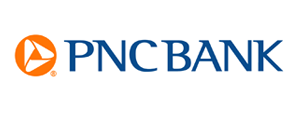"After being loyal customers of PNC Bank for many years, this year we’ve decided enough is enough — we are closing all our accounts and will never bank with PNC again.
This is hands down the worst banking experience we’ve ever had. From start to finish, the level of incompetence, lack of accountability, and total absence of customer care has been shocking. When a dispute arose, PNC was not only the cause of the issue by filing everything incorrectly, but they also refused to take responsibility. They took money out of our accounts without resolution, and despite repeatedly being told the dispute was filed wrong, they offered zero help and told us there was nothing they could do.
Not once did a banker return our calls or follow up — not a single ounce of guidance, ownership, or concern from anyone at this institution. It became so bad we had to work directly with the other party to resolve the issue ourselves — something PNC should have handled from the beginning.
Customer service is a joke. No follow-through, no attention to detail, and no idea what they're doing. Every representative gave us different answers, and not one of them followed up. It felt like no one at PNC actually knows how to do their job, or worse, they just don’t care.
We are utterly disgusted with how we were treated, and we strongly urge others to reconsider banking with PNC. If you value your time, your money, and basic human decency — look elsewhere.
We will never bank with PNC again. Ever."


